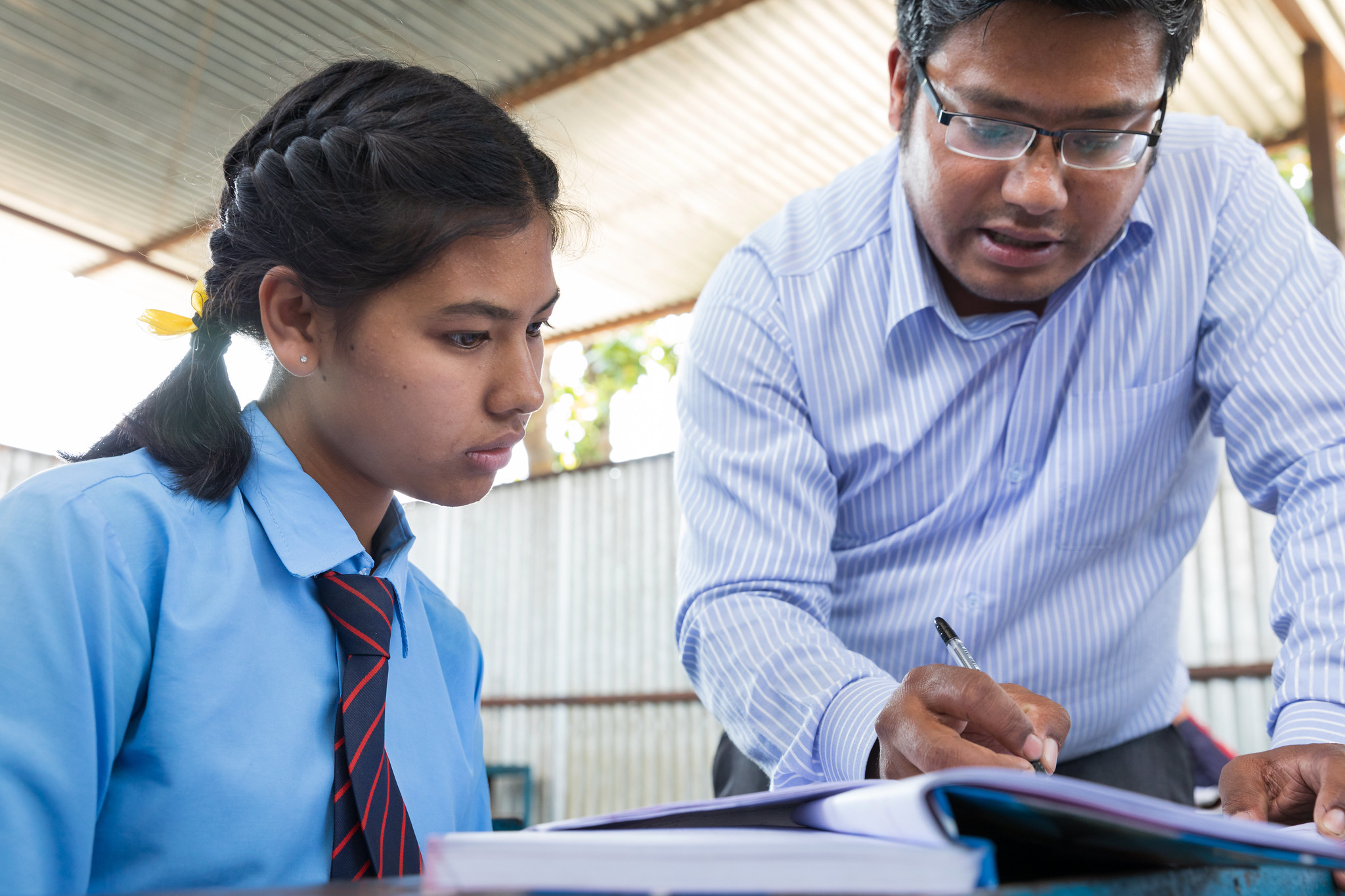
In the context of its extension until 2027, the Global Partnership for Education (GPE) Knowledge and Innovation Exchange (KIX), a joint endeavour with Canada’s International Development Research Centre (IDRC), is offering costed extensions to a selection of current applied research projects. Following a competitive process, the School leaders as agents of change towards equity and inclusion project is one of those selected.
Background
There is growing consensus that a focus on equity and inclusion in schools could lead to significant improvements in access to quality education, yet a clear strategy of how to do so remains contested. Girls and children with disabilities (CWD) face specific barriers to access in lower- and middle-income countries, setting countries back from their human, economic and political development goals. Promoting a strong leadership foundation supported by peer support at all school levels has proven to be a promising, sustainable approach to addressing these challenges.
This project focuses on enabling school principals to become leaders of change in their communities. To achieve this, the project has developed a capacity-strengthening methodology called the Networked Improvement Community (NIC). It leverages the expertise of school leaders to address specific issues of exclusion that are unique to their local context. With the support of open learning resources and a community of peers, school principals in Nepal, Pakistan, and Afghanistan are empowered to tackle barriers to equity and inclusion, implement data-driven solutions, and involve teachers and school communities to adapt pedagogy and improve access and learning. The approach recognises the specific needs of marginalised learners, such as girls and CWD, and the evidence produced targets education practice and policy development at the national and regional levels.
Results to date
Based on project findings, open resources have been created in local languages to guide school principals in addressing small-scale inclusion problems in their schools. These resources draw on the experience and expertise of other school leaders who have encountered similar challenges, encouraging them to work together to experiment with solutions. The project has expanded its reach beyond engaging school leaders and is now collaborating with other local education stakeholders. In Nepal, the project findings have been incorporated into the emergency policy plan of a local municipality, while in Pakistan, the Federal Ministry of Education has requested an action plan to include school leadership training as a key strategy to improve the inclusion of children with disabilities in Punjab. Additionally, Pakistan’s Federal Government Educational Institutions, Cantonments and Garrisons has called for the implementation of the NIC approach in all army public schools across the country.
Upcoming Plans
In the extension, "knowledge cafes" will be held for national stakeholders to share their experiences and understanding of the methodology and its approach to inclusion. Along with these cafes, capacity-strengthening activities will take place to ensure that stakeholders have the necessary tools to continue with adaptive implementation. Scaling design workshops will also be held to create feasible approaches. The project aims to build a knowledge base for widespread NIC use across GPE countries by creating the necessary tools and resources along the way. Further data collection will ensure that NICs continue to promote student inclusion and greater access to education for marginalised learners.
Further details on the project and updates can be found here.
